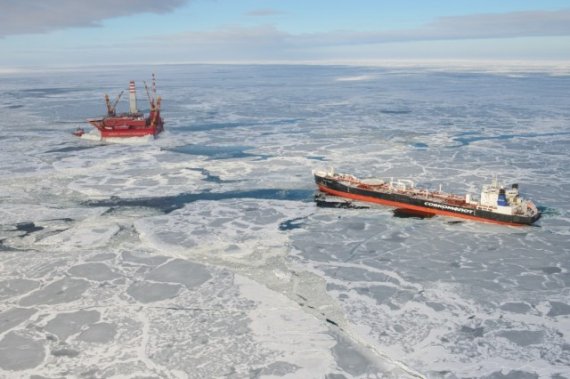Oil has been extracted in the frozen north and delivered to Europe’s largest port since 2008. But the Oeljanov was bringing the first cargos of oil from the Russian oil rig Prirazlomnaya, where a Greenpeace campaign made the news last year with action that led to the arrest of a number of activists.
Meanwhile Wageningen is doing a lot of research on the environmental risks of oil-drilling around the North Pole, explains Bas Bolman, who leads the Arctic Programme within TripleP@Sea.
One of the studies is on new methods of cleaning up oil pollution under arctic conditions. The standard method of dealing with an oil spill is to dissolve the oil using a dispersing agent. Research by professor Tinka Murk in the Gulf of Mexico showed, however, that the dispersant leaves a thick layer of sludge on the seabed. As a consequence, hardly any fish larvae grow at the spot.
Mesocosm
Wageningen URr is currently studying an alternative cleaning technique with which oil in water is fast absorbed by ecotech foam. This foam is said to be able to absorb oil pollution in cold water and on ice. ‘We want to simulate an oil disaster on a small scale under cold conditions, so that we can test the effectiveness of the materials under arctic conditions in mesocosms. These are simulated ecosystems under controlled conditions. Only they are very expensive,’ says Bolman. He is therefore looking for financiers for this research.
There have not yet been any large-scale oil disasters in the North Pole region. But the chances of an oil spill in the course of extraction and transportation of the oil are larger in the polar region than on the North Sea, says Bolman. Mist, snow, extreme cold, storms and long hours of darkness complicate the oil extraction process. What is more, clearing up oil pollution is more difficult because the oil is sticker. And to add to the complications, there is the polar ice.

